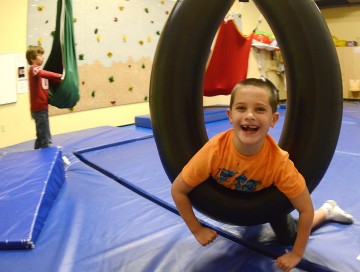Understanding My Child’s Complex Learning Profile: A Guide to Evaluations
Monday, October 19, 2015

How do you understand what is going on and more importantly, how do you create a plan to address your child’s difficulties? Having your child evaluated is a critical step to help answer questions and provide you with the best course of action.
Depending on the age of the child and the presenting behavior, you may receive a recommendation from a pediatrician or teacher for a particular type of testing, or you may decide yourself that you need more information and seek out professional help. Here are a few things to keep in mind along the way.
1) The evaluation process is just that – a process. You may be involved with a number of professionals who are looking at various aspects of your child with the goal of understanding the whole picture. This could include anything from a physical exam to classroom observations to specific psychological and educational testing.
2) Ask questions. What tests are being used? Will the evaluator be available to observe your child in the classroom or talk to your child’s teacher or educational team? How long will it take to get back the test results and the evaluator’s report? The more you know about the process, the more you will be able to help prepare your child and get the information you need.
3) Consider a neuropsychological evaluation. If your school agrees to an evaluation, your child will receive educational testing by a special education teacher or learning specialist. Your child may also meet with a school psychologist or social worker for IQ testing and a social/emotional assessment. But for complex learners, neuropsychological testing is important. A neuropsychologist is trained in the cognitive functions that impact behaviors and will be able to identify specific components of your child’s learning profile. This will give you a roadmap to understand school performance and help predict what your child will struggle with and where they will do well.

5) Get a plan, not a label. The goal of an evaluation is to understand the whole child and create the best course of action to address specific difficulties. You may be worried that a diagnosis will label your child and lead to poor self-esteem, but the right diagnosis can be a relief. It can give you the information needed to ensure your child receives the supports that work. It can give you the language you need to talk about your child’s strengths and challenges and help your child understand who they are as a learner and a person - a wonderful, unique, capable person who can achieve his hopes and dreams.

Related Articles
- Sheila Hamilton: Learning From Mental Illness and How You Can’t Erase the Past
- The Reluctant Adventurer: Learning New Lessons as Principal for Almost a Day
- OHSU Ends Brain Awareness Series with “Art & The Learning Brain” Lecture
- Leather Storrs: Learning to Recognize & Celebrate Regional Specialties
- College Counseling: Great Schools for Kids Who Love Learning Languages
- College Admissions: Common Application Prompt, Learning from Failure




 Delivered Free Every
Delivered Free Every
Follow us on Pinterest Google + Facebook Twitter See It Read It